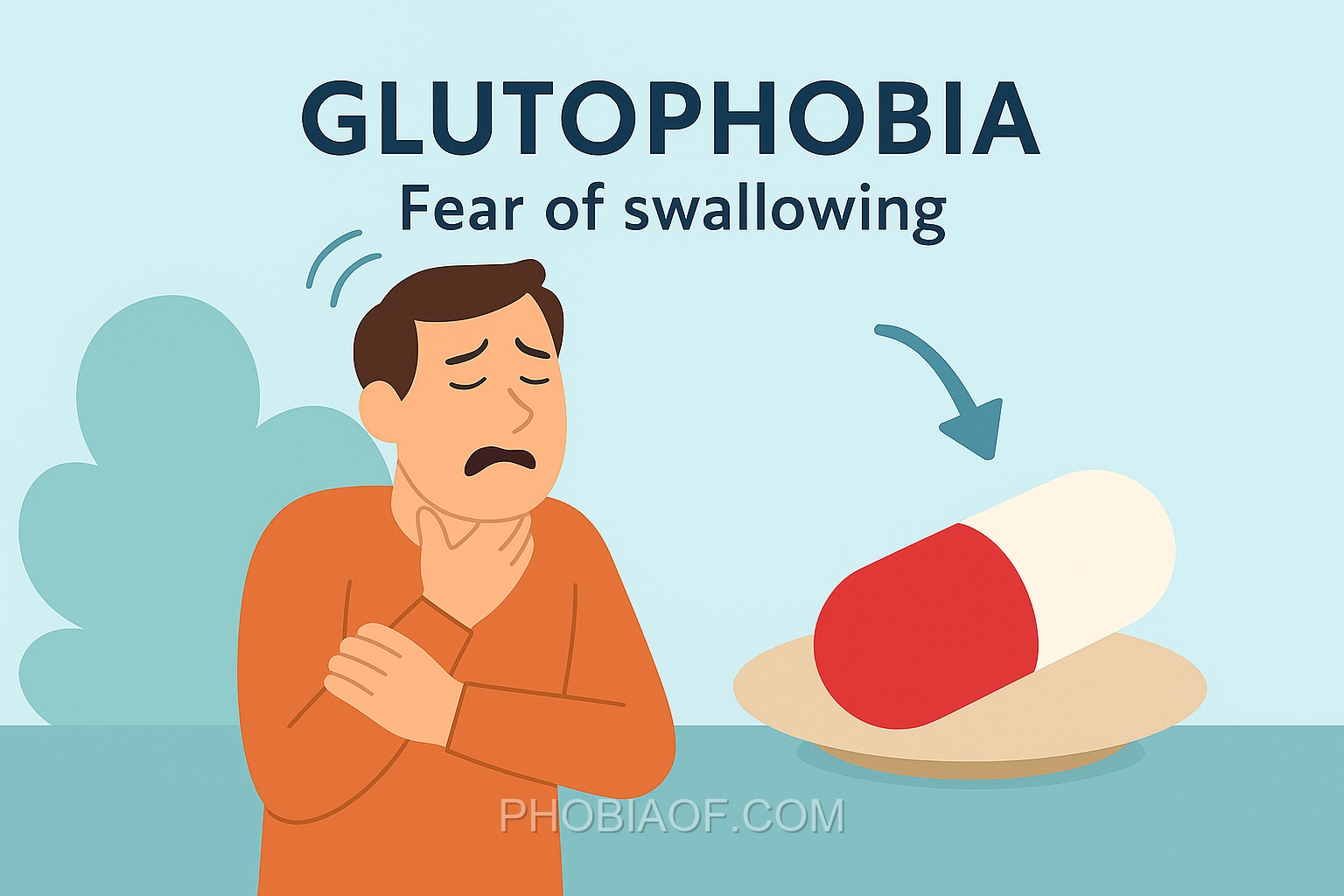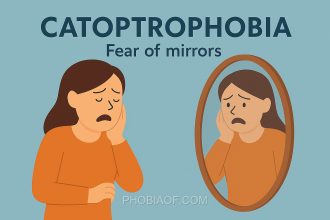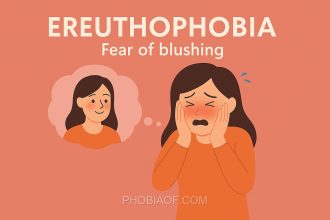Have you ever thought about swallowing and felt a wave of anxiety wash over you? For some, this isn’t just a fleeting concern but a persistent fear known as Glutophobia, the fear of swallowing.
Glutophobia derives its name from the Latin word “gluto” meaning “to swallow” and the Greek word “phobos” meaning “fear.” It is an anxiety disorder that causes individuals to experience intense fear or anxiety at the thought of swallowing food, liquids, or even pills.
This fear can have a profound effect on a person’s daily life. Those affected might avoid certain foods, struggle during mealtimes, or even experience weight loss due to their avoidance behaviors. The fear might also cause physical symptoms like a lump in the throat, heart palpitations, or shortness of breath, further complicating their relationship with eating.
Understanding and empathizing with those who have Glutophobia is crucial. It’s not just about being picky or overly cautious; it’s a genuine fear that can impact their nutritional health and social interactions. If you or someone you know is dealing with this phobia, it is important to seek professional help to manage and overcome the fear effectively.
Causes of Glutophobia
Glutophobia is the fear of gluten, a protein found in wheat, rye, and barley. Although this phobia might seem unusual, it can significantly affect a person’s life. Understanding the potential causes of glutophobia can help in addressing and managing this fear. Several factors might contribute to the development of this phobia.
- Genetic Predisposition: Some individuals might have a genetic tendency to develop anxiety disorders or phobias, including glutophobia. If a person has a family history of phobias, they might be more susceptible to developing similar fears.
- Traumatic Experiences: A person might develop glutophobia after a negative experience with gluten, such as a severe allergic reaction or food poisoning. The memory of such an event can trigger an intense fear of consuming gluten again.
- Learned Behavior: Observing a family member or close individual who has a strong fear of gluten can lead to the development of glutophobia. Children, in particular, might mimic the anxious behaviors of adults around them.
- Psychological Factors: Individuals with anxiety disorders are more prone to developing phobias. An underlying anxiety disorder can manifest as a specific fear, such as glutophobia.
- Environmental Factors: The increasing awareness and sometimes negative portrayal of gluten in media and society can contribute to the fear. Misleading information about gluten’s effects on health might amplify a person’s anxiety and lead to phobia development.
Interestingly, some theories suggest that the rise in gluten-related fears might also be linked to the increasing prevalence of gluten-free diets as a health trend. This societal shift could inadvertently cause individuals to associate gluten with danger, even without personal negative experiences.
While glutophobia can be distressing, understanding its potential origins can be the first step towards overcoming it. Addressing the underlying causes, whether through therapy or education, can help individuals manage and reduce their fear of gluten.
Symptoms of Glutophobia
Individuals with glutophobia experience an intense fear or anxiety when confronted with situations involving glue or sticky substances. This phobia can manifest in various ways, impacting both physical and emotional well-being. Below are some common symptoms:
Physical Symptoms:
- Panic attacks that can occur suddenly and without warning
- Excessive sweating, particularly when near or thinking about glue
- Rapid heartbeat or palpitations
- Shortness of breath or a feeling of choking
- Nausea or gastrointestinal distress
- Trembling or shaking
Emotional and Behavioral Symptoms:
- Overwhelming dread at the thought of encountering glue
- Avoidance of situations where glue might be present, such as art classes or DIY projects
- Difficulty concentrating due to persistent worry about encountering triggers
- Feelings of helplessness or loss of control when near glue
- Distress or anxiety in anticipation of situations involving sticky substances
When severe, these symptoms can significantly interfere with daily life, making it challenging for individuals to engage in routine activities or social interactions.
Treatment for Fear of Swallowing (Glutophobia)
Experiencing a fear of swallowing, known as glutophobia, can be distressing and may significantly impact your daily life. However, it’s important to know that this phobia can be treated and managed over time. With the right approach, you can regain confidence in your ability to eat and drink without fear.
Below are some effective treatment options and coping strategies to help you overcome glutophobia:
Proven Therapies
- Exposure Therapy: This involves gradually facing the fear of swallowing in a controlled and safe environment. By starting with small, manageable steps, such as swallowing soft foods or liquids, you can slowly build up your tolerance and reduce anxiety over time.
- Cognitive-Behavioral Therapy (CBT): CBT is designed to change the fearful thoughts and beliefs about swallowing. A therapist can help you identify negative thought patterns and replace them with more positive and realistic ones, reducing anxiety and fear.
- Counseling: Speaking with a mental health professional can provide support and guidance. Through counseling, you can explore the root causes of your phobia and develop strategies to manage and overcome it.
Self-Help Coping Techniques
- Relaxation Exercises: Techniques such as deep breathing, progressive muscle relaxation, and visualization can help reduce anxiety levels and make swallowing feel less daunting.
- Meditation: Practicing mindfulness and meditation can enhance your awareness of the present moment, helping to calm your mind and reduce the fear associated with swallowing.
- Support Groups: Connecting with others who are experiencing similar challenges can provide reassurance and encouragement. Support groups offer a platform to share experiences and coping strategies.
In some severe cases, medication such as anti-anxiety medications might be considered to provide temporary relief. However, the focus should remain on therapy and developing coping skills that foster long-term improvement.
If your fear of swallowing is interfering with your quality of life, it is crucial to seek professional help. A mental health professional can offer personalized treatment plans tailored to your needs.
Remember, overcoming glutophobia is possible with patience, persistence, and the right support. Take the first step towards a more comfortable and fulfilling life by reaching out for help today.
Conclusion
Understanding the causes and symptoms of glutophobia, the fear of swallowing, can significantly empower individuals dealing with this challenging condition. By recognizing the underlying factors and acknowledging the physical and emotional manifestations, those affected can take meaningful steps towards addressing their phobia.
It is important to remember that many people successfully overcome or manage their phobias with time, patience, and the right support. Whether through therapy, self-help strategies, or medical assistance, there are numerous pathways to relief and recovery. If you or someone you know is struggling with glutophobia, consider seeking the guidance of a healthcare professional or therapist. Professional support can provide tailored strategies and reassurance, helping you regain control and confidence.
Embrace the journey towards overcoming fear with optimism and resilience. With the right resources and a supportive network, a fulfilling life free from the constraints of phobia is entirely within reach. Remember, you are not alone, and help is always available.






